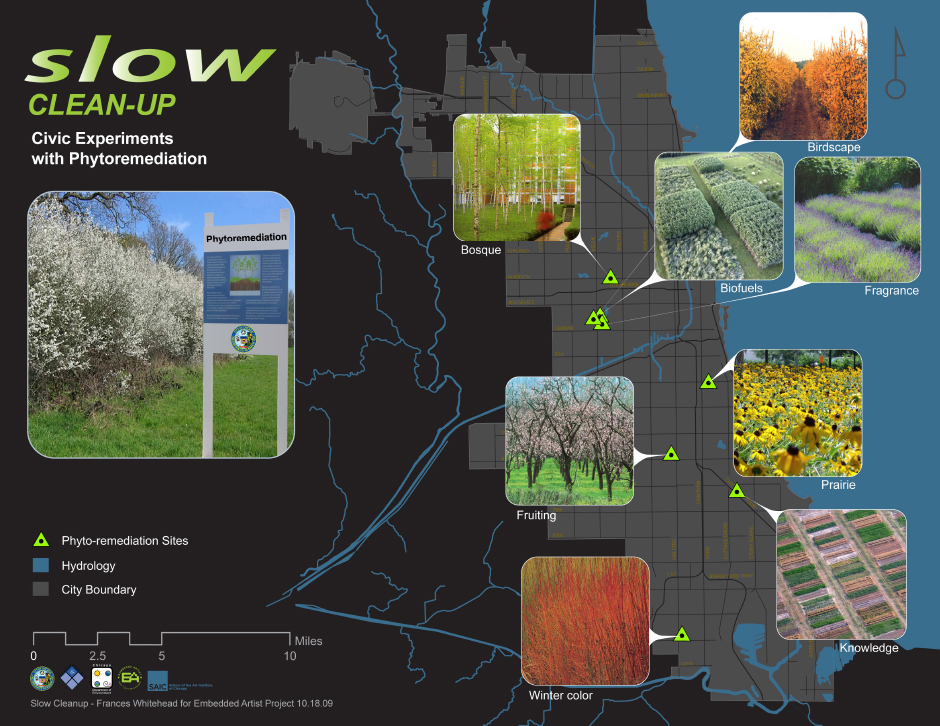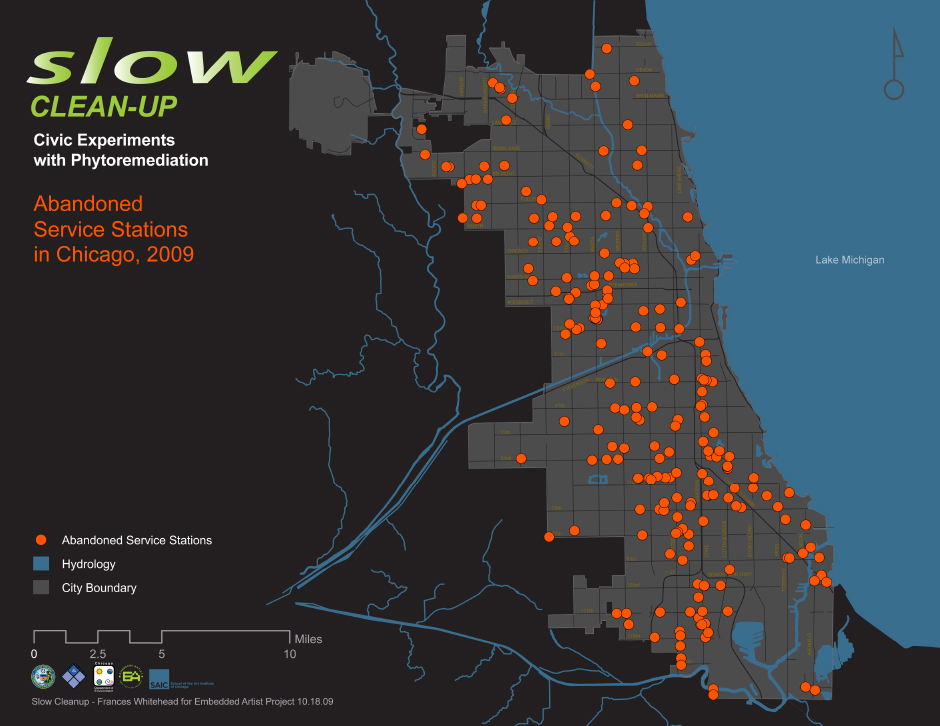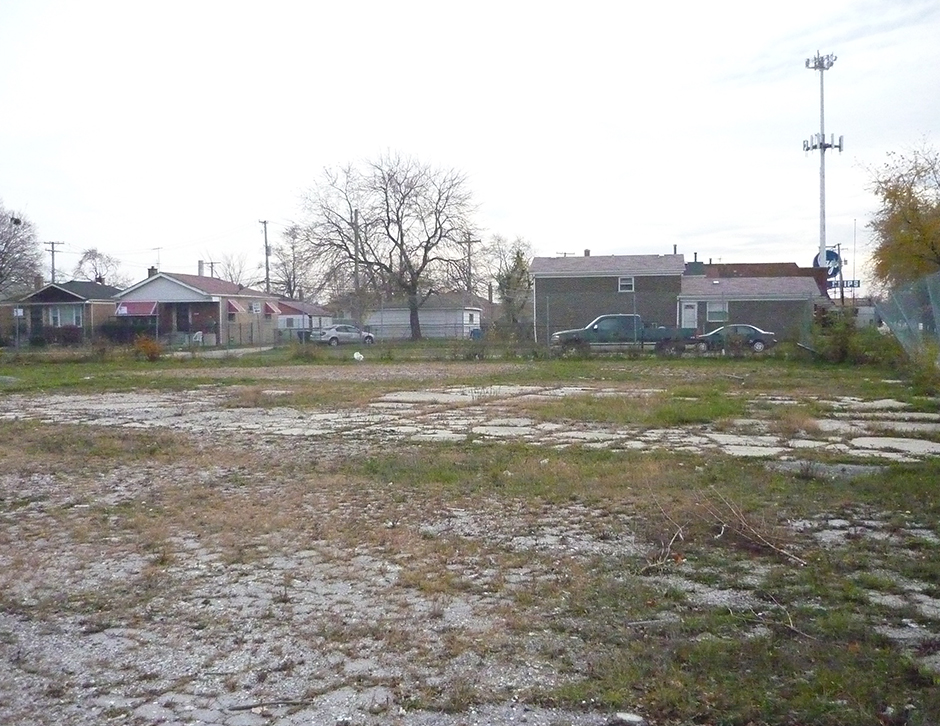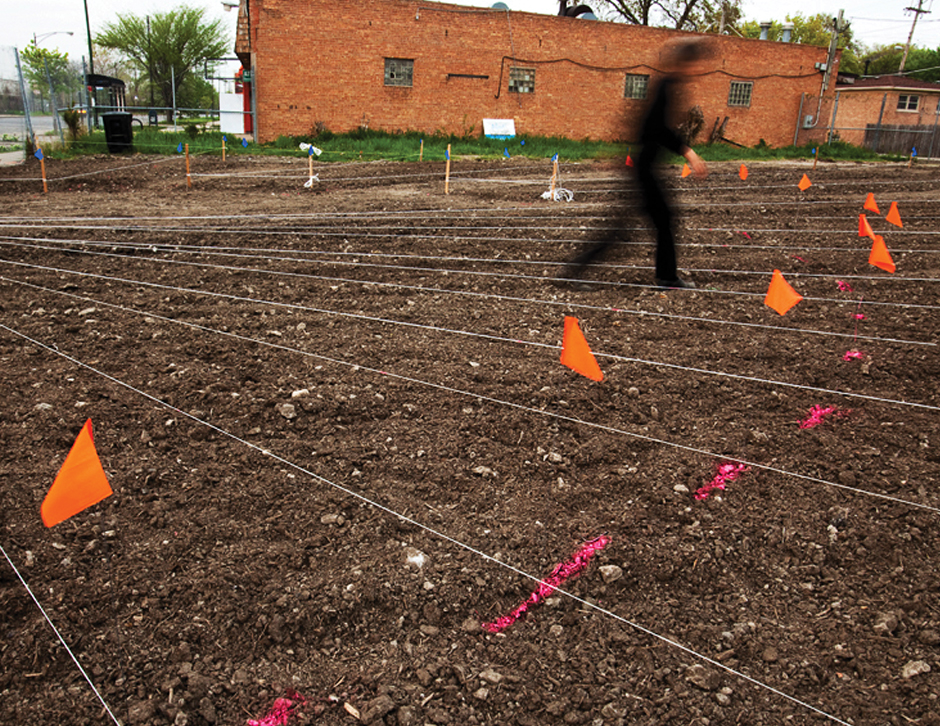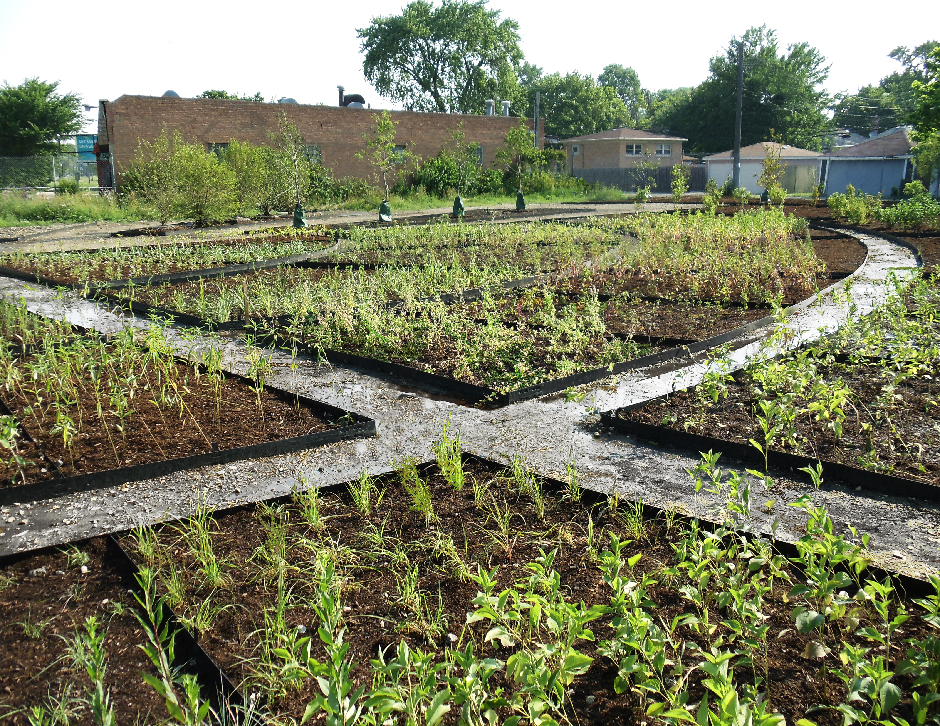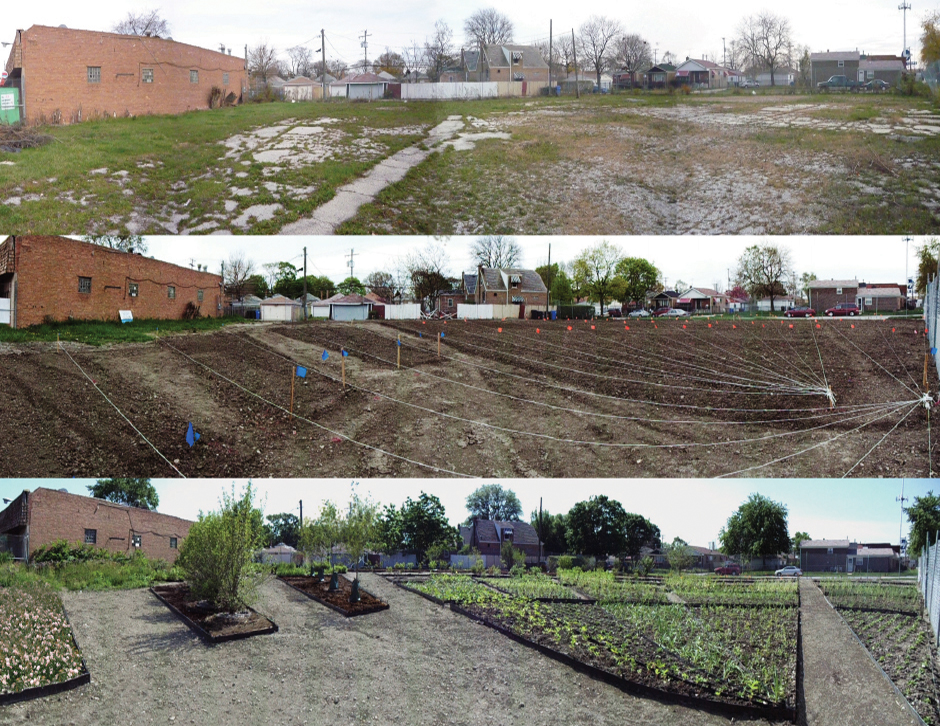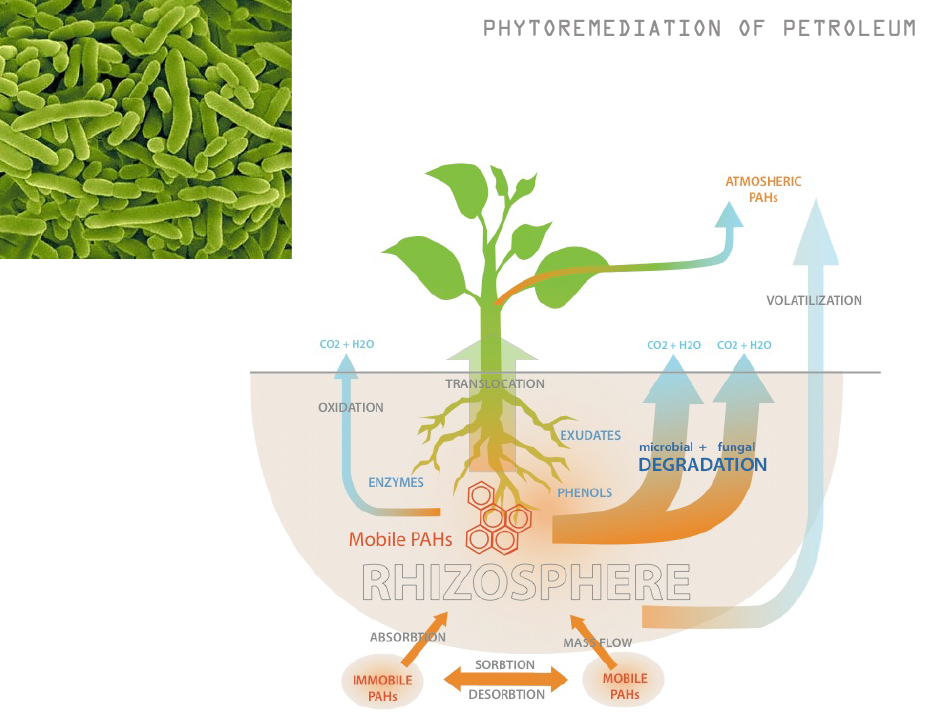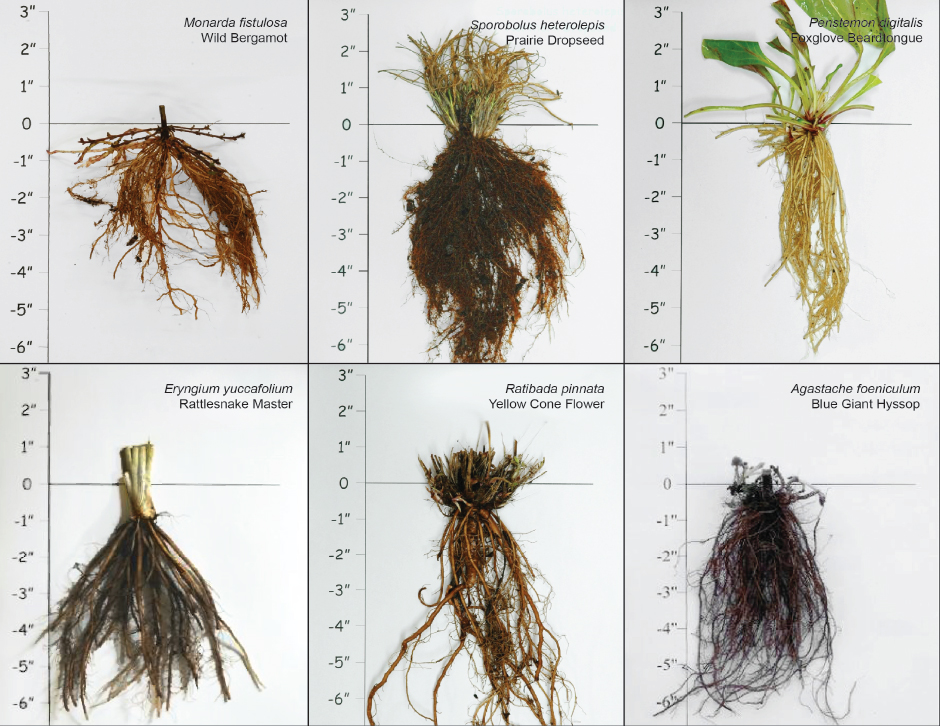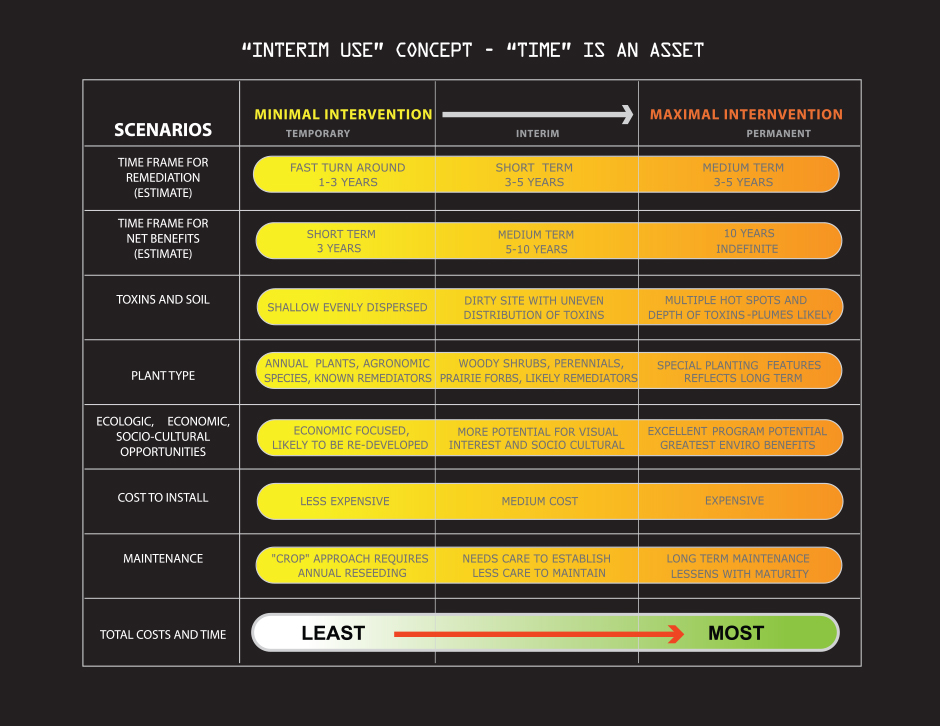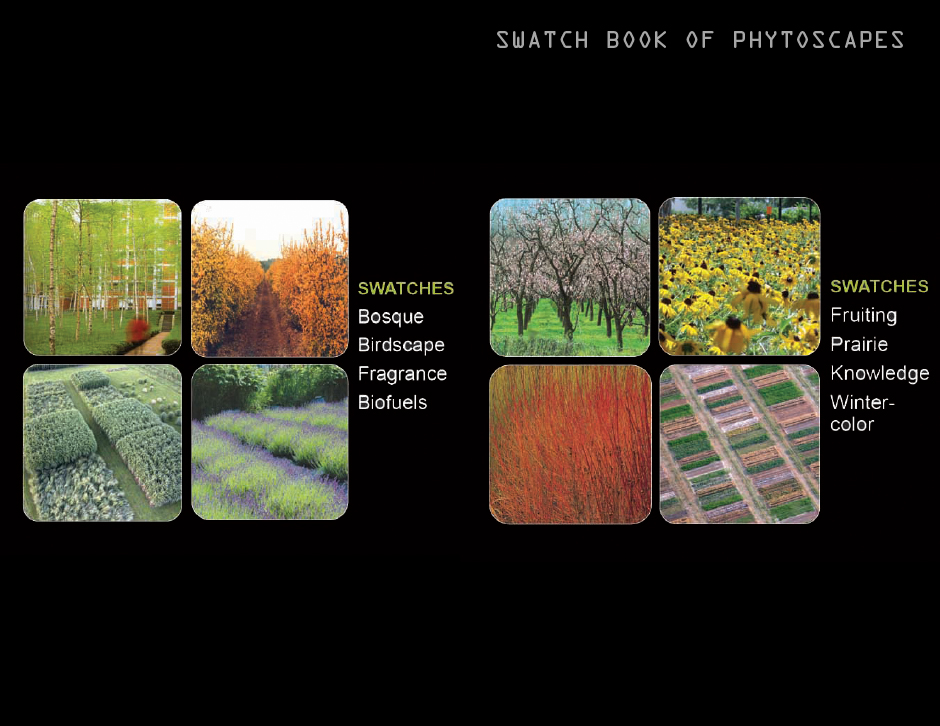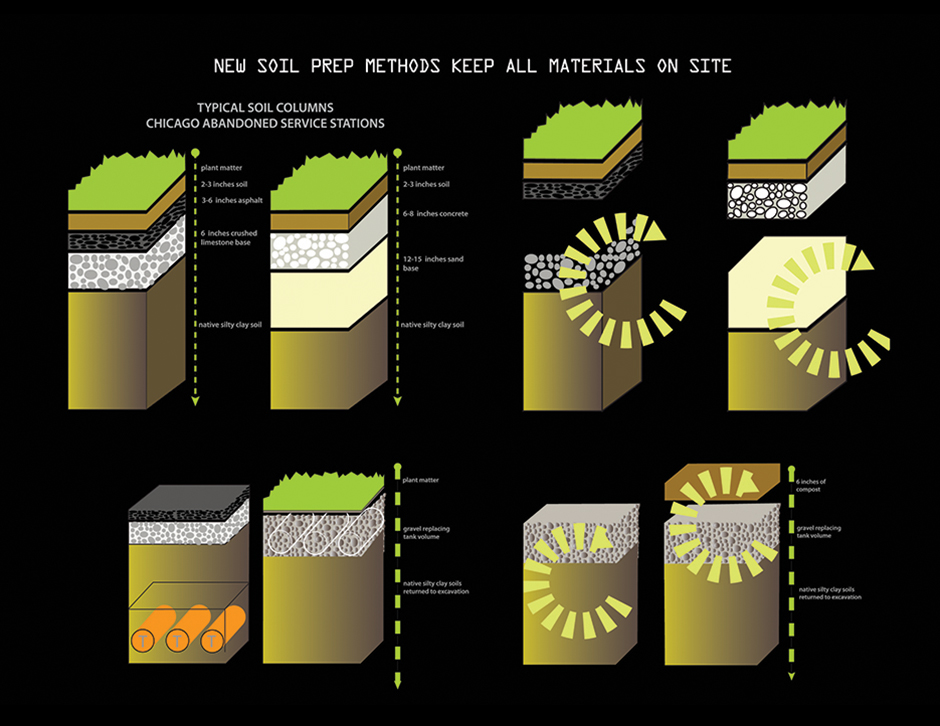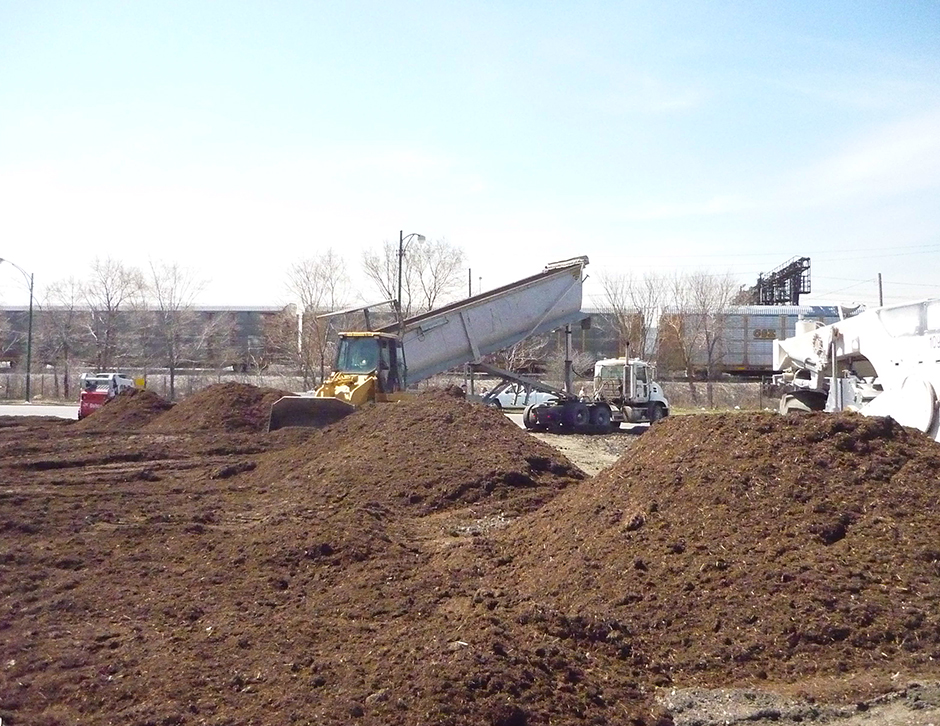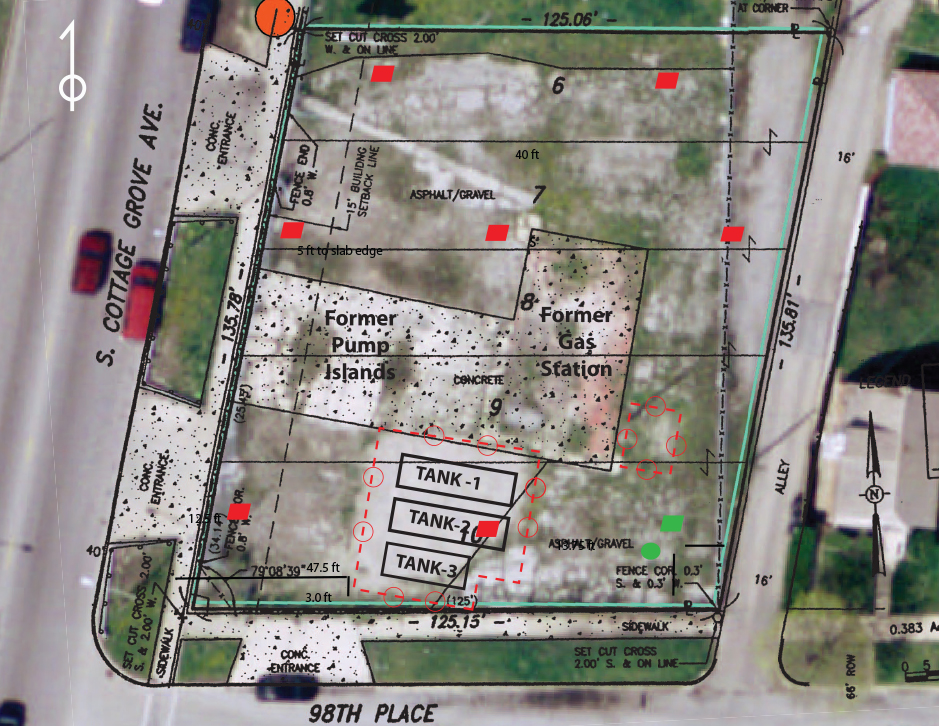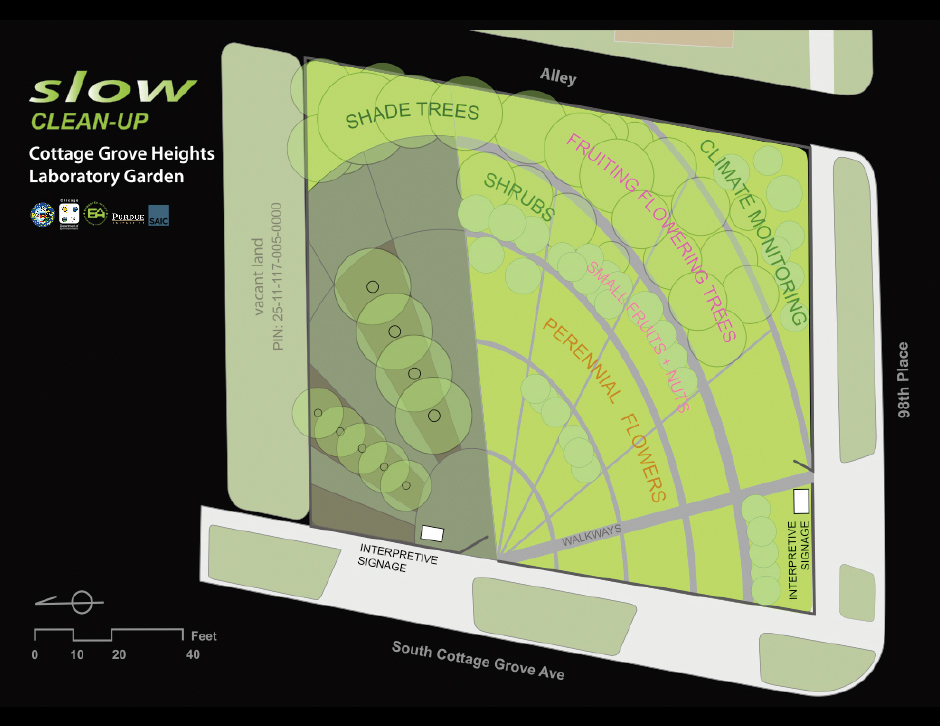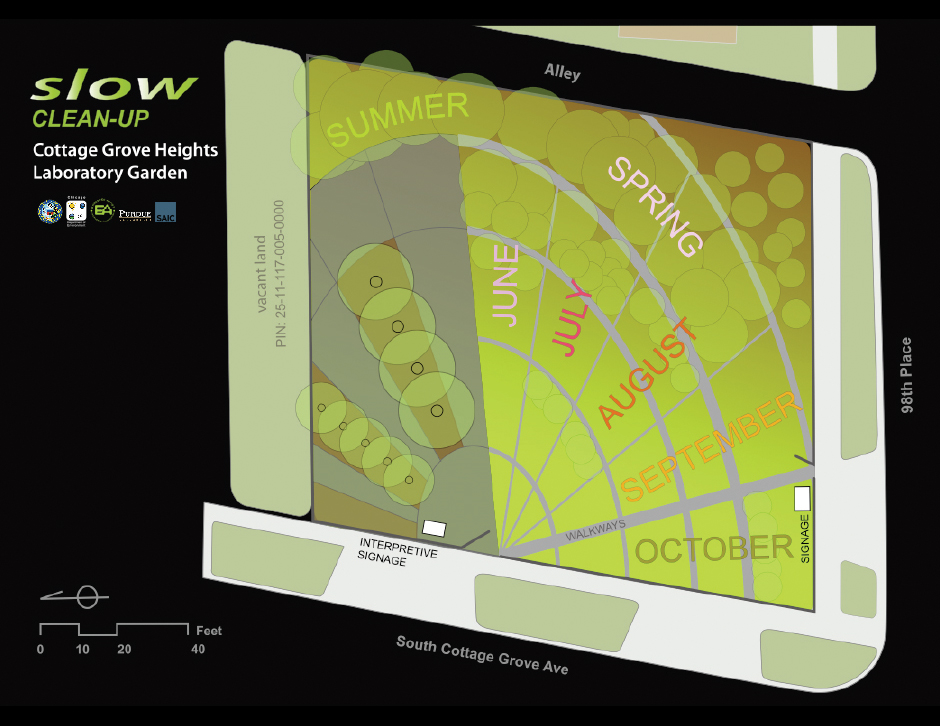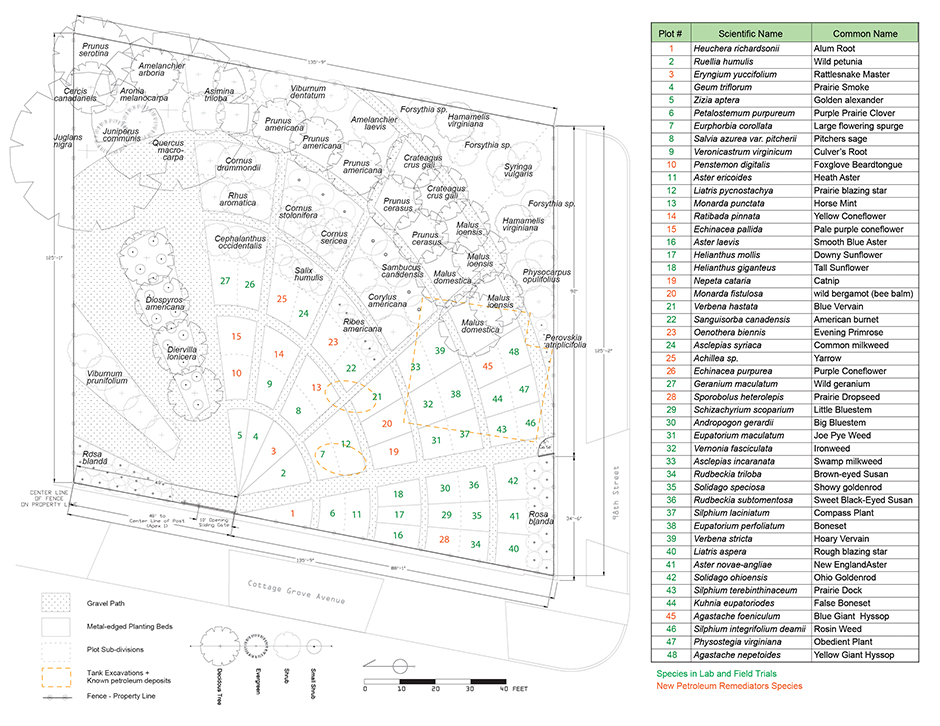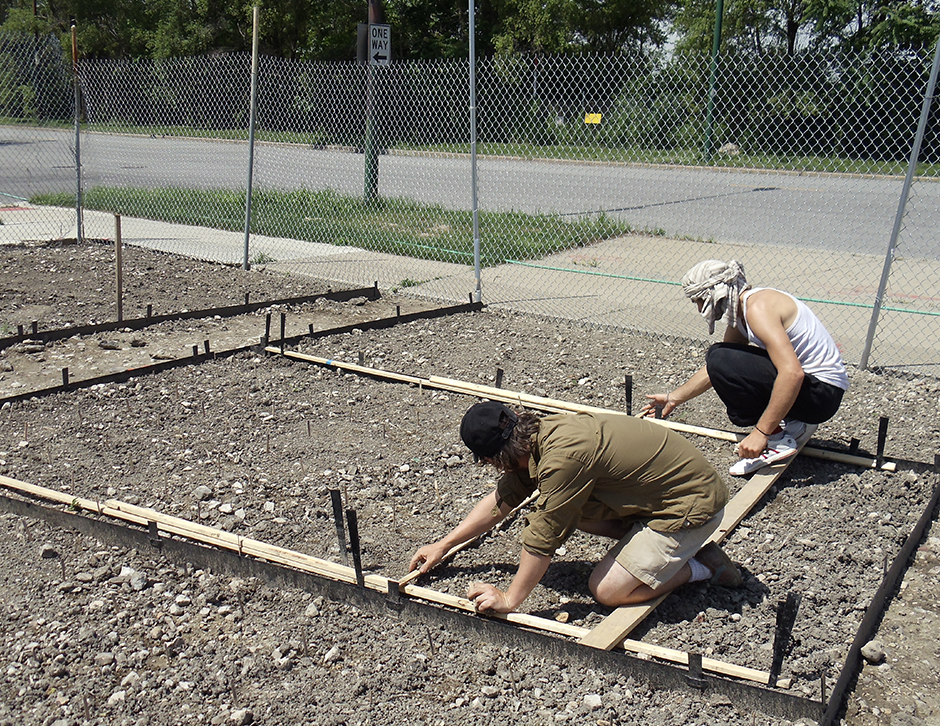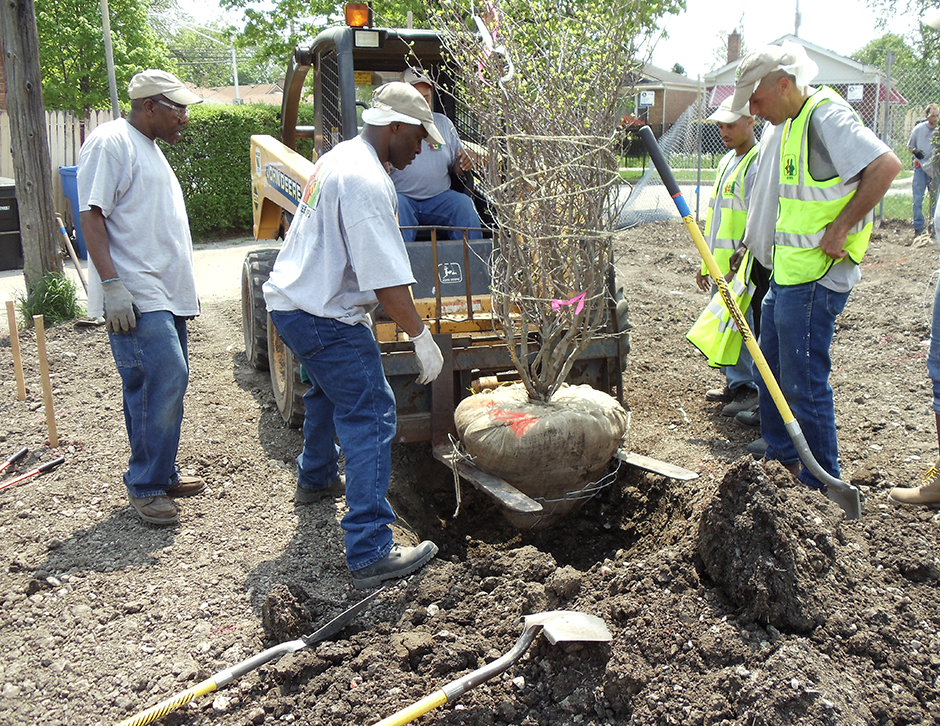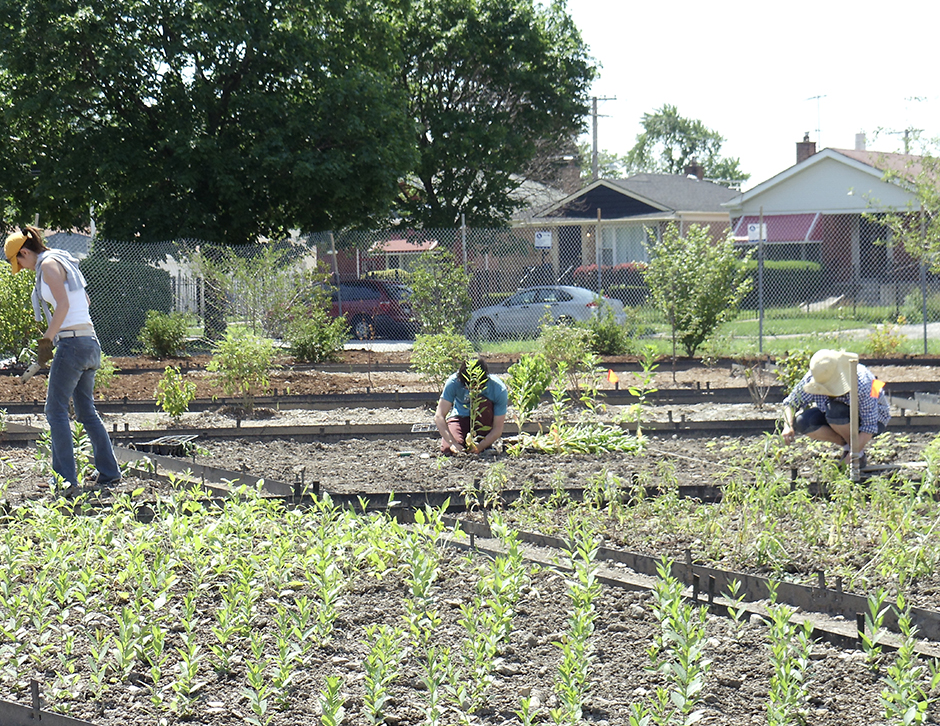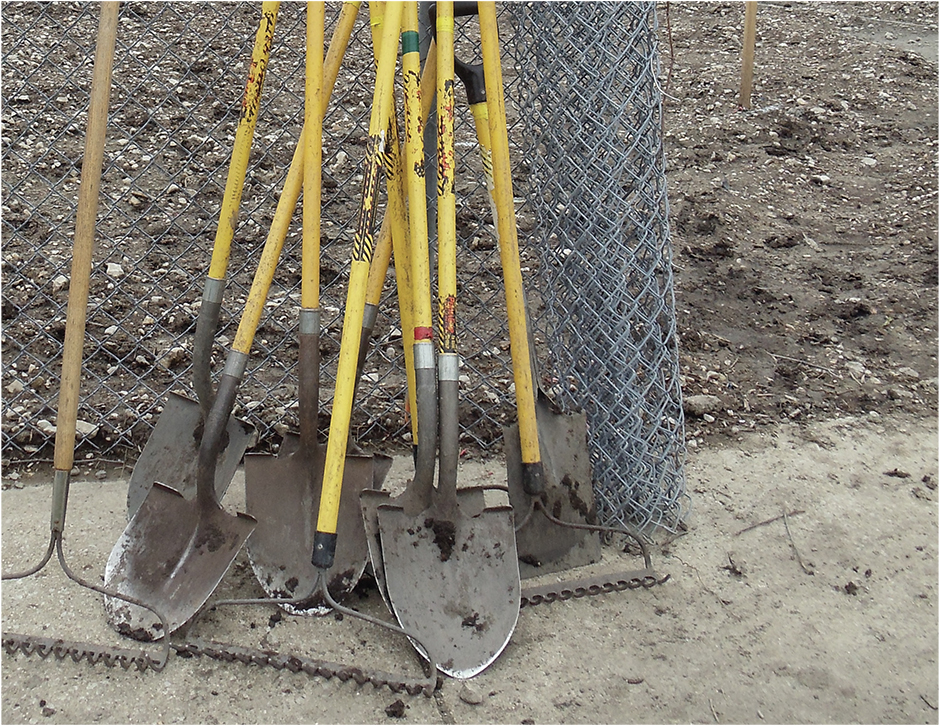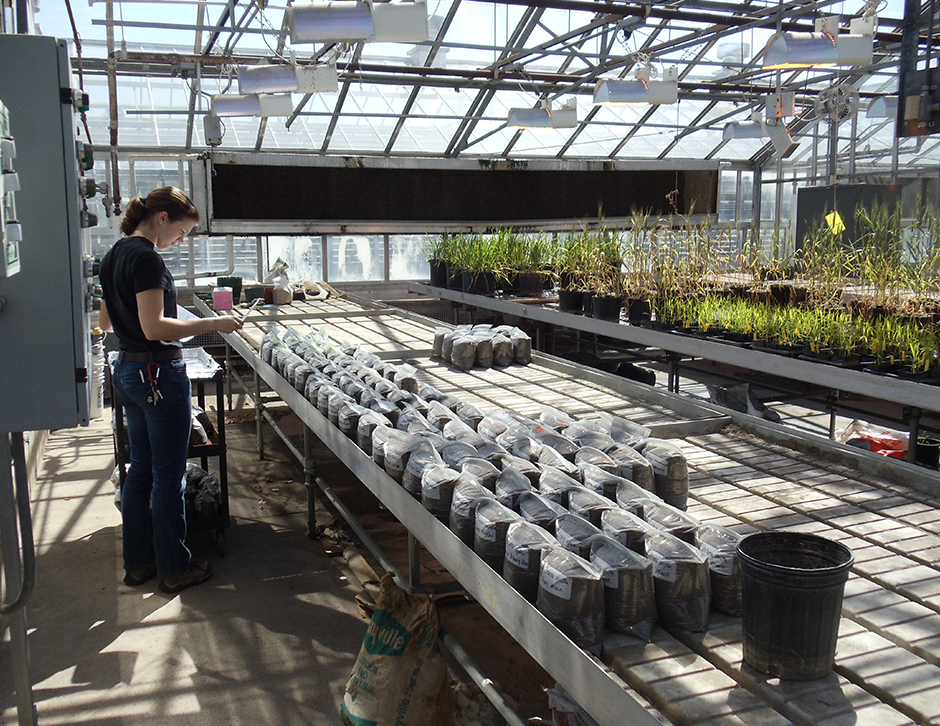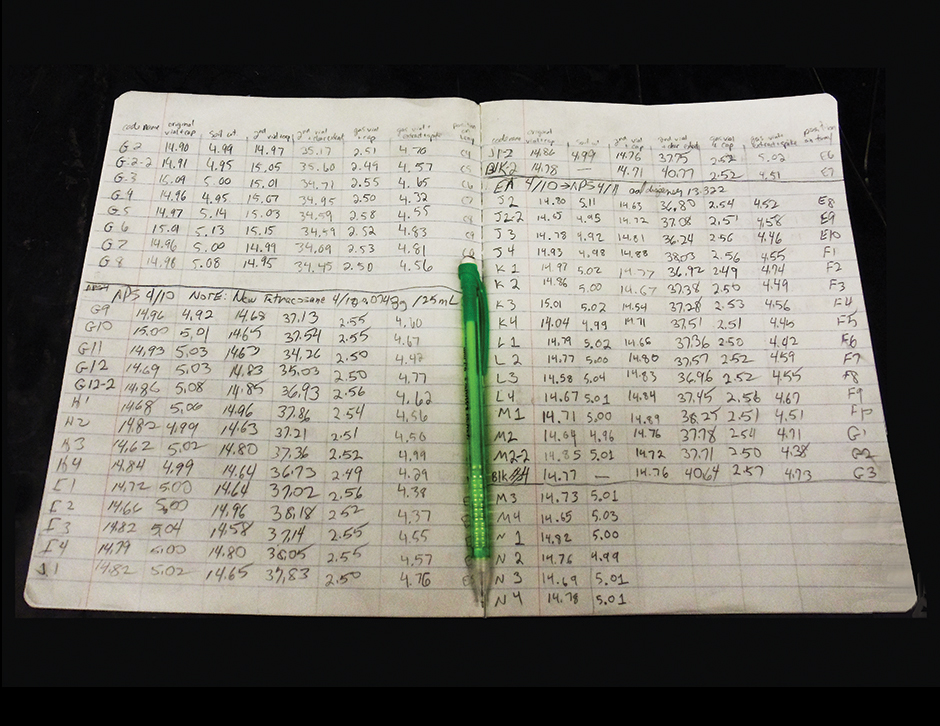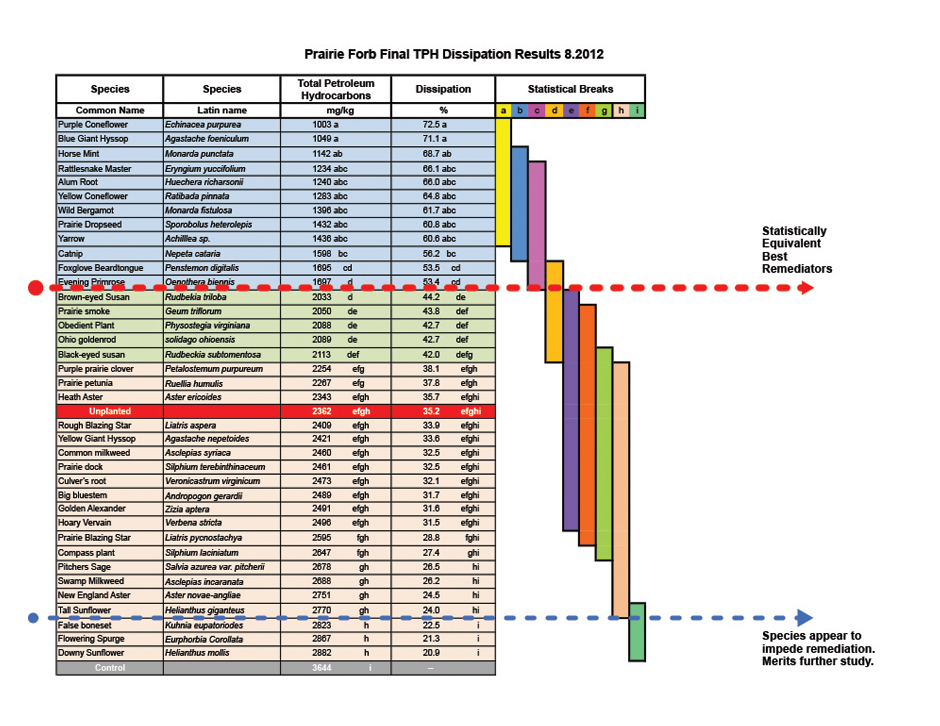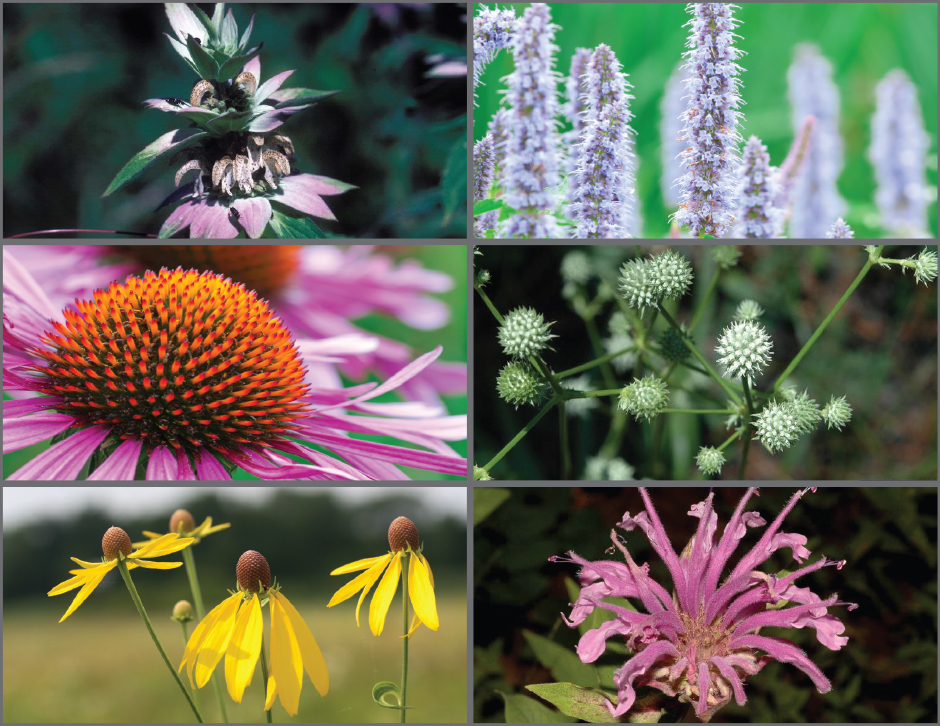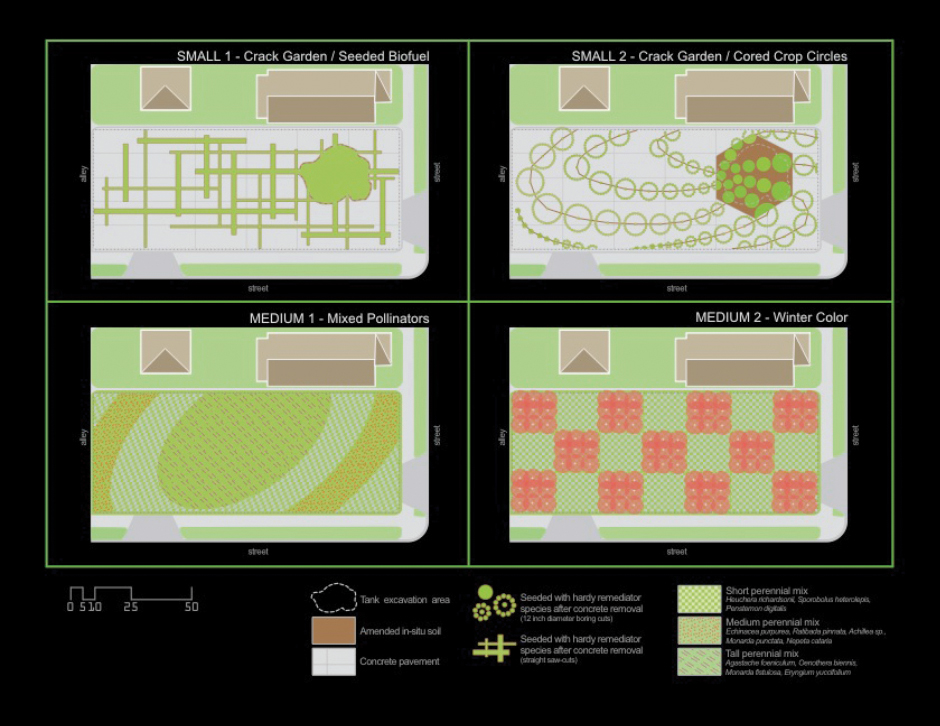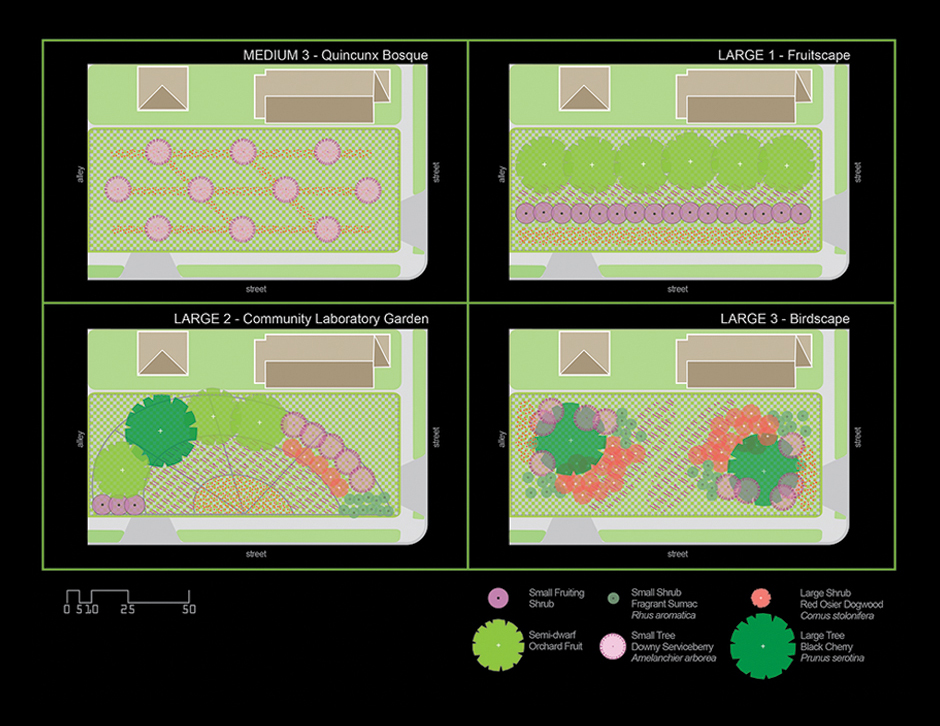FRANCESA
RANCESWR
ANCESWHT
NCESWHIE
CESWHITT
ESWHITEA
SWHITEHL
WHITEHE
HITEHEA
ITEHEAD
TWHEADF
EHEADFR
HEADFRA
EADFRAN
ADFRANC
DFRANCE
DATE
2008 - 2012
LOCATION:
Chicago, Illinois, USA
LINKS:
SLOW CLEANUP Report Download
Minga-Gardening: A Creative Pedagogy for Learning with Soil and Art
Make Art with Purpose
Art/Science: Collaborations, Bodies, Environments
TEAM
Frances Whitehead, Embedded Artist, CDOE
David S. Graham, P.G. Brownfields Initiative, Department of The Environment
Dr. Arthur Paul Schwab, Professor, Soil Science, Texas A&M University
CITY OF CHICAGO
Richard M. Daley, Mayor, City of Chicago
Matthew Guilford, Director of Innovation, Department of Innovation and Technology
Suzanne Malec- McKenna, Commissioner, Department of The Environment
Kimberly Worthington, Deputy Commissioner of The Environment
Lois Weisburg, Commissioner Department of Cultural Affairs
PARTNERS + CONTRIBUTORS
School of the Art Institute of Chicago
Chicago State University, Biology and Geography Departments
Cottage Grove Heights Community Coalition
Greencorp Chicago
Prairie Moon Nursery, Minnesota
Possibility Place Nursery, Illinois
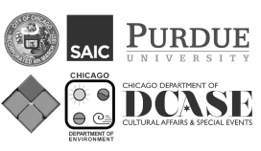
SLOW CLEANUP
Civic Experiments in Phytoremediation
SLOW Clean-up is a cultural approach to site remediation designed to increase the net benefits from plant-based remediation processes. Designed for abandoned gas stations, the legacy of the automobile culture, the sites are prevalent throughout the urban landscape. These designed civic experiments contribute to the aesthetics and revitalization of the sites, while simultaneously adding value at every stage of development by creating educational opportunties along with habitat, reduced heat islanding, and carbon sequestration.
Piloting the use of ornamental, flowering, and fruiting plants, along with the typical agronomic plants most associated with phyto-remediation, a lab trials proof of concept has identified 12 new petroleum remediators, increasing the plant palette for this alternative approach. These phyto-scapes utilize time as an asset and increase awareness of the interconnectivity of natural and cultural systems in the urban ecology.
This project evolved through the Embedded Artist Project (EAP), an ARTetal Studio initiative, and experimental platform for civic engagement. Conducted with the City of Chicago between 2008-2012, the pilot program was supported by The School of the Art Institute of Chicago. The EAP embeds artists into city government to bring new perspectives, mindsets, and processes to the future. More (link to WDAK Project)
The Embedded Artist Project embeds artists into city government to bring new perspectives, mindsets, and processes to the future.
Modeled on the Slow Food movement, the program rejects the “Fast Cheap Easy” paradigm of conventional ”dig and dump” cleanup. The program is constructed as a series of interim approaches that model time in relation to investments, benefits, and complexity. They will be interpreted for the public, increasing awareness of the interconnectivity of natural and cultural systems in the urban ecology. We also evolved an in situ soil prep method for keeping all soils on site, repurposing a road-building tool for an aggressive onsite soil amendment regime. Technically, petroleum remediation is performed by soil microbes attracted to phenols, sugars, exuded by some plant roots but not others. Surprisingly, very few plants have been tested including the prairie forbs native to Chicago. Additional plant remediators would allow the re-imagining of the post-carbon landscape, and the revaluing of these degraded properties.
Working with soil scientist Dr. A.P. Schwab, The Cottage Grove Heights Laboratory Garden hosts the “field trials” for new plant remediators in the SLOW Clean-up Project. The Lab Garden, a typical corner site, is collaboration between the City of Chicago Department of Environment, Chicago State University Biology and Geography Departments, Purdue University Soil Chemistry researchers, and the School of the Art Institute of Chicago, among other partners.
The concept of “community laboratory” hosted by the “citizen scientists” of Cottage Grove Heights, extends the opportunities for civic engagement through participatory science and community gardening. The Lab Garden will be designed to be aesthetically pleasing, scientifically functional, and highly legible for all users, even as it cleans the soil onsite. The investigations at the Lab Garden will contribute to the scientific knowledge concerning the remediation of urban soils, provide advanced educational opportunities for students, and simultaneously perform community outreach toward environmental awareness. Students from 4 communities of practice have been involved in the project, reflecting the social, cultural, environmental and economic aims of the project.
The concept of “community laboratory” extends the opportunities for civic engagement through participatory science and community gardening.
The Schwab Lab has conducted a complementary series of "bench trials" at Purdue University, testing 85 "likely remediator" plant species for petroleum remediation and uptake. Together the field + bench trials form a complete “proof of concept” for the project which has identified 12 new species of native ornamental petroleum remediators and promising results for several other species that require further study.

